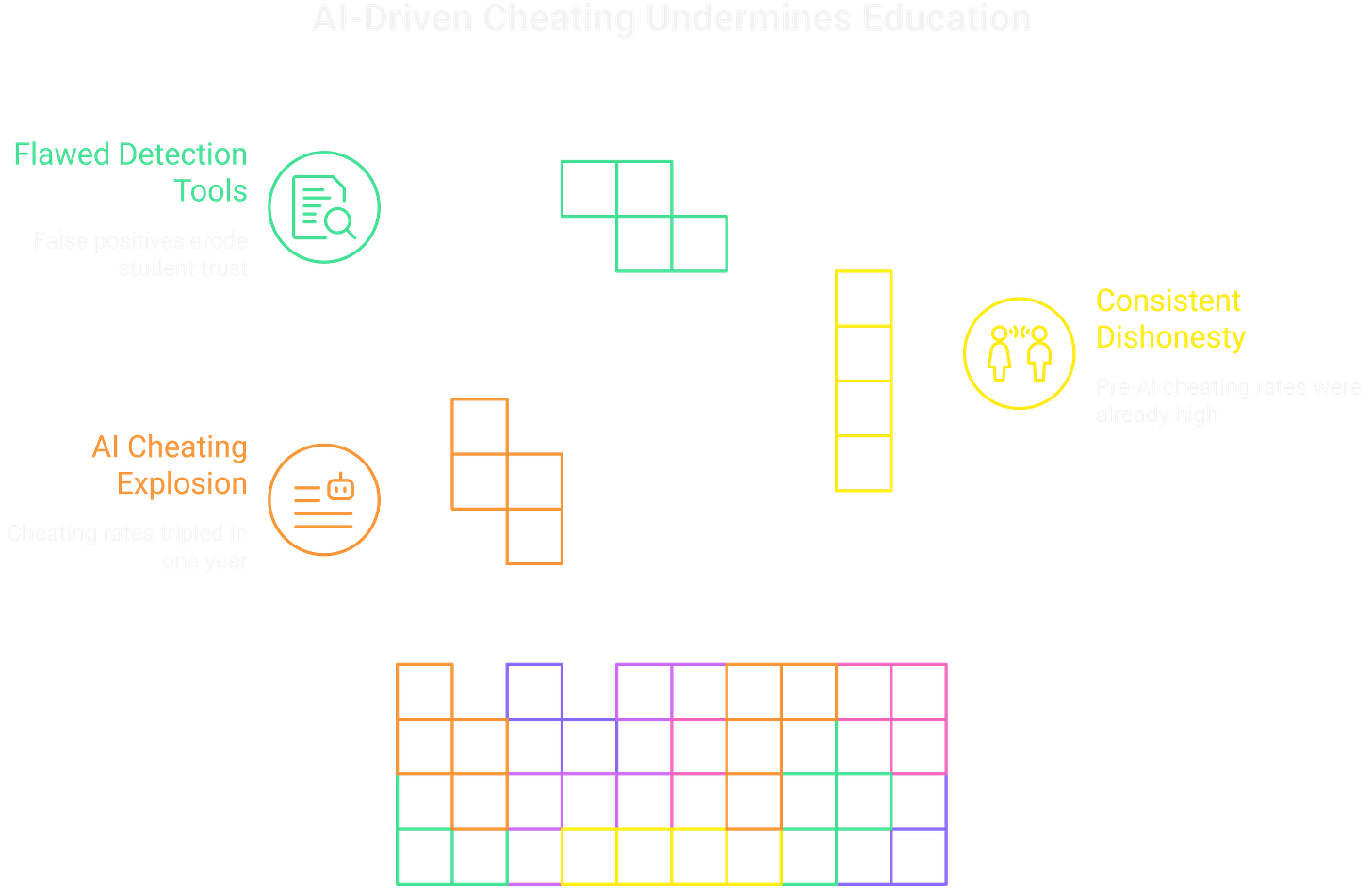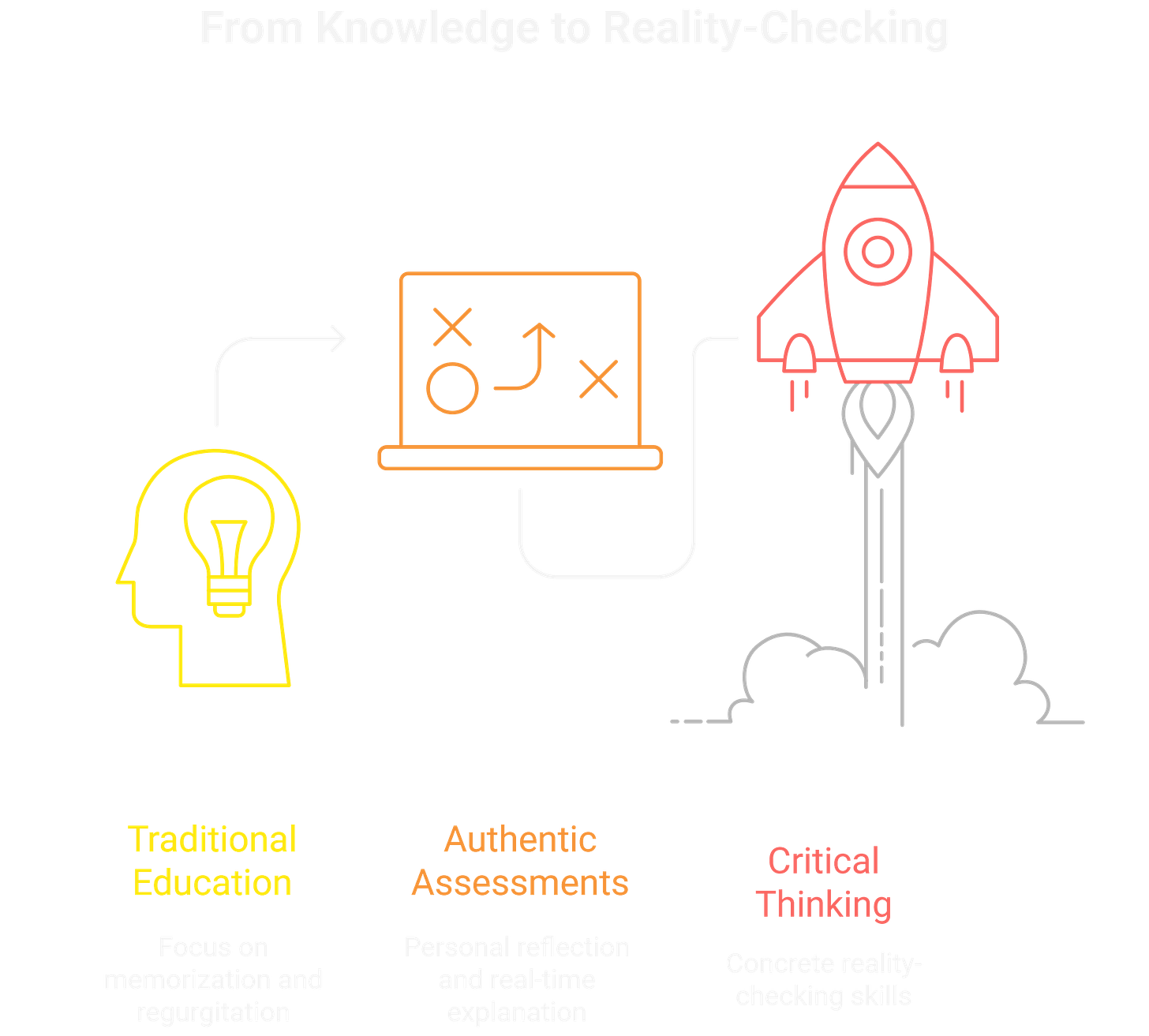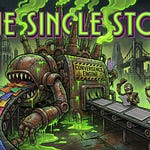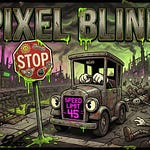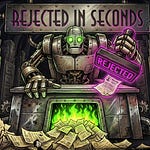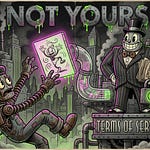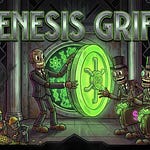TL;DR: We built a 200-year education system around memorizing facts and proving you know things. AI can fake both instantly. The skill schools actually need to teach? How to tell what’s real. But almost nobody’s doing it.
Between 60-70% of high school students admit to cheating, with or without AI, but the rates stayed the same. They just changed how they do it.
Why Are We Still Teaching Kids to Prove They Know Things When AI Can Fake It Instantly?
Education spent two centuries on one premise: memorize information, prove you know it, advance to the next level. The system worked because knowledge was scarce and faking it was hard.
That collapsed around November 2022. Nearly 7,000 UK university students got caught cheating with AI tools in the 2023-24 academic year, triple the previous year’s rate. You’d think students suddenly became dishonest. The data tells a different story.
High school students self-reported 60-70% cheating rates both before and after ChatGPT’s release. The numbers stayed flat. Students swapped copying from each other for copying from AI. The method changed, but the behavior stayed the same.
Teachers deployed AI detection tools to catch cheaters. The tools have false positive rates. Even a 1% error rate means wrongful accusations pile up across every essay over four years. The detectors flag legitimate work from non-native speakers and neurodivergent students. The tools meant to protect academic integrity are destroying trust instead.
When Did “I Know This” Become Impossible to Prove?
AI made authentic knowledge impossible to verify using traditional methods. The burden of proof shifted from “do you know this” to “can you prove you did this yourself.”
A Florida State professor found a workaround for multiple-choice tests. ChatGPT gets “easy” questions wrong that students answer correctly. The AI pattern-matches rather than understands. When wrong answers align with ChatGPT’s errors, you’ve caught them. Except this only works because current AI is imperfect.
68% of teachers now rely on AI detection tools, a 30-percentage-point increase. Student discipline rates for AI-related accusations jumped from 48% in 2022-23 to 64% in 2024-25. Schools are enforcing harder, but the tools are broken. OpenAI shut down its own AI detection software because it couldn’t reliably distinguish AI text from human writing.
The damage compounds. Falsely accused students disengage from education. Trust erodes. Mental health deteriorates under the stress of potential wrongful accusations. We’re creating an environment where proving you did your own work is harder than doing it.
If you know a parent still preparing their kid for standardized tests, send them this. The tests measure a skill AI just made obsolete.
What If We’ve Been Teaching the Wrong Skill for 200 Years?
Education optimized for knowledge recall and test performance. Students who memorized well got the best grades, the best colleges, the best jobs. AI exposed that these metrics measure the wrong thing. They never measured understanding. They measured performance on verification tests.
The real skill was always judgment, discernment, and the ability to reality-check information. We forgot that somewhere between Scantron machines and No Child Left Behind. Standardized testing required standardized answers, which required memorizable facts.
Everyone’s panicking about AI cheating. I think the actual crisis is that a generation is learning to prioritize the appearance of authenticity over the real thing. Stanford professor Victor Lee points out that 95% of students believe AI shouldn’t write entire papers, yet many use it anyway because there’s a gray area between “help” and “cheating.” Teachers approve Grammarly, which runs on large language models. Where’s the line?
When you can’t prove you did the work, and detection tools are unreliable, the implicit lesson becomes: the appearance of authenticity matters more than authenticity itself. The hidden cost? We’re teaching kids that verification is impossible. When reality becomes indistinguishable from convincing fakes, why bother being real?
Subscribe before AI makes your credentials meaningless. The gap between “I know this” and “prove it” is getting wider every month.
How Do You Teach a Kid to Verify Reality When Reality Is Increasingly Fake?
We need to move beyond better AI detection. That’s an arms race nobody wins. The real solution is teaching kids to become what I’ll call “AI Detectives” until someone invents a better term: people who can reality-check everything, including their own thinking and AI-generated content.
Start with redesigning assessments around authenticity. Move away from five-paragraph essays on books everyone’s read. Ask for reflection on personal experiences. Projects tied to local context. Assignments that require students to show their work and explain their reasoning in real-time conversations. The kind of assessment where faking it requires more effort than just doing it.
Then teach critical thinking as reality-checking skills. Not the vague “analyze and evaluate” language that’s been in curriculum standards for decades. Concrete, testable skills: How do you verify a claim? What makes a source trustworthy? How do you spot when statistics are being manipulated? How do you recognize AI-generated patterns in text, images, and data? What questions should you ask before believing something?
The constraint is brutal: this approach requires more teacher time per student, which costs money schools lack. It also requires teachers to possess these skills themselves, and most lack them because nobody taught them either. The path forward is clear. Getting there is the hard part.
Drop your best “AI Detective” move in the comments. What’s one rule you use to reality-check information?
Special Thanks:
Alexandru Giboi - For the comments and engagement.
Digital-Mark - For the mutual support and thoughtful insights!
Frequently Asked Questions
Q: Isn’t this just panic about new technology, like when people worried about calculators or the internet? A: Calculators changed which math skills mattered but left basic numeracy intact. AI does something different: it generates convincing fakes of knowledge work. Calculators required you to understand the problem before solving it. AI will solve problems without requiring understanding and explain them convincingly enough that you believe you do.
Q: Can’t we just ban AI in schools until we figure this out? A: Students have phones in their pockets with internet access. Banning fails when the technology is everywhere. Even if you could enforce a ban in schools, you’d be training kids for a world that no longer exists. They’ll enter workplaces where AI is standard, and they’ll have zero experience distinguishing good AI use from dependency.
Q: What specific skills should parents teach kids if schools aren’t doing it? A: Teach them to question everything, including AI outputs. Make them explain their reasoning out loud. Have them fact-check claims before accepting them. Show them how to verify sources. Most important: model these behaviors yourself. Kids learn verification skills by watching adults reality-check information in real-time.



